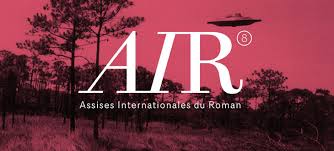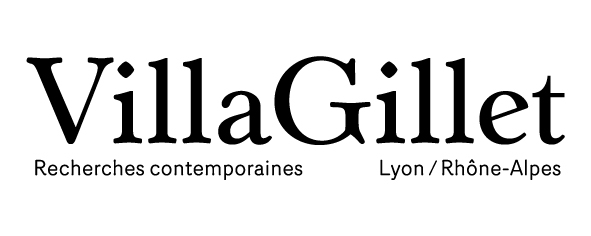Sofi Oksanen: They fooled you - Greetings from the countries bordering Russia
![[title-image]1332154753058[/title-image] oksanen © Sigrid Nygaard](https://cle.ens-lyon.fr/anglais/images/oksanen_1404200688430-jpg)
Sofi Oksanen was born in Finland in 1977. The daugher of an Estonian mother and a Finnish father, she has become a key figure on the Finnish literary scene with just three novels and a few plays. Purge established her international reputation and earned her several literary awards in France in 2010, including the Prix Femina étranger.
Les éditions Christian Bourgois publieront prochainement un recueil en français des textes écrits à l'occasion des assises du roman.
When I was a kid, my Estonian family never watched TV. Not because they disliked TV-shows, but because Soviet-TV was pure zombie-propaganda. Finland was my other homeland and when we got back to Finland, after visiting my Estonian family, switching on the television was one of the first things we did. It was like opening a window. I can still smell that moment, when my lungs were filled with free air, though I wouldn't have used that word at the time – free.
Calling Soviet-reality not-free wasn't something one ought to do, if you wanted your family members to be able to keep on living behind the Iron Curtain, and if you didn't want to cause them any trouble. You learn the textbook of silence in that kind of society without even noticing it yourself – yet it doesn't mean you wouldn't recognize the free world as a different and better place, if you just have the chance to live in it, like I did.
Nowadays, people supporting democratic values in Russia don't watch TV anymore and some of them say the propaganda is worse than it was during Soviet years. But you are not going to see people there rallying for free media. They are not allowed to. There hasn't ever been a tradition for free media, so the majority of the people don't actually even long for it. It doesn't mean they wouldn't choose that option, if they ever had had the chance to live in a country were freedom of expression is at least somehow established. After that they might also storm to the barricades and defend that freedom no matter what. But there's no tradition for that and the new order is going to make sure that it'll never occur in a large scale.
Instead Russia has another kind of tradition: silencing those who disagree with authorities. They also have a habit for propaganda and for brainwashing the masses, and they use this weapon during war and during peace, constantly. The purpose is to create an alternative reality with a bunch of imaginary enemies, with the purpose to secure the power of the ruling class. Today that class is FSB, topped by a small group of former KGB-men, who are used to keep the people in control with economical methods.
The imaginary reality is needed to justify their invasions, and military expenses that are going to consume 33 percent of the state budget in the next two years at the same time as most of the citizens are extremely poor. It's needed to prevent that truth comes to light, exposing their dirty money and corruption, the money they've robbed from the people; their chance for a better future, higher life expectancy, better health, better education, lower rates in sexually transmitted diseases, and so on.
That fiction is also created to whitewash their own past in the KGB and therefore they need to revive the Soviet Union, and its heroes, like Stalin, because otherwise they would be lost. The public face of this ruling circle is the president himself, a third generation KGB-man.
The freedom of press became even more limited when Putin returned to presidency in 2012. The amount of counter-intelligence has exploded, FSB has bigger budgets than ever – and the official state budget for propaganda is now sky-high.
No wonder these experts of psychological manipulation fooled you. For West modern image of evil is Osama bin Laden, not a white, blue-eyed man wearing a suit and a tie. He and his cronies don't wear national costumes representing otherness, they don't look like terrorists, they are not Arabs, Muslims or black. And that's why West was so certain they wanted to be like us. You never expected China to be that way, but Russia, you were certain of, even though the signs of the opposite development have been visible for years.
It wasn't until the invasion of Ukraine that the Western countries started to talk about Russia as an imperialistic country. It took all these years to get these definitions into Western discourse even though Eastern-European countries have been trying to get rid of colonialist traces of Soviet Union for past twenty years – Russia actively harnessing this process. We on the Eastern border of Russia have learned it takes ages to become a subject in Western discourse and therefore this Eastern European decolonization process haven't really caught Western eyes. Even though Western countries understand that slavery is one of the reasons behind the problems many countries have in Africa, they expected Easten Europe to become modern democracies in an instant. It's because the West didn't recognize the colonialist nature of Soviet occupation and due to that it did not recognize the process when Russia returned to its practice.
Naturally those in power in Moscow are aware of this. They rely on Western ignorance and they saw what happened to Germany after WW2. They knew the best thing to do was to deny the past atrocities, create an imaginary reality where bad things never existed, only glory to Stalin. In West we think we can create a better future by learning from mistakes we've made. In Russia the policy is the opposite and coming to terms with the past, in the way that process is interpret by the West, is a sign of weakness. Guilt is not a part of Russian new patriotism. On the contrary: history teaching is not to be based on facts, but on ideas rousing national pride. Literally. It's based on ethnification and superiority of one ethnic group, Russians, and imperialism, which is now considered the only possible form of government. The West left this type of values behind ages ago, and that's another reason for Western blindness. The new Russian values are too opposite to our post-modern world. It's almost like looking back to Western imperialistic past – except that we wouldn't take that path anymore – or could you imagine France suddenly heading to conquer Africa? No, you wouldn't. And here lies the wisdom of KGB-thinking – when lies are big enough they'll always pass. When ideas are far enough from the Western understanding, they become invisible in West. You can only identify ideas you recognize, and that's why you wouldn't have let Gestapo-trained men fool you, thanks to movies, thanks to books, thanks to German guilt and defeat, Gestapo is the historical symbol for evil you know.
I say a group of KGB- men bluffed you because you see more movies about CIA than KGB. You read more books related to CIA or Gestapo than KGB. It's not a symbol of evil for you, thanks to Russian policy of denying their past and closing archives. Therefore you have believed their fiction, imitations of friendship and democracy, and welcomed their dirty money warmly even though it made Western political decisions less independent.
It's better late than never, but let the new Russia be a lesson for West of how important it is to come to terms with the past and condemn also past human rights crimes and hold organizations accountable for them.
If that had been done to KGB, you wouldn't have trusted a government ruled by KGB-men.
Pour citer cette ressource :
Sofi Oksanen, Sofi Oksanen: They fooled you - Greetings from the countries bordering Russia, La Clé des Langues [en ligne], Lyon, ENS de LYON/DGESCO (ISSN 2107-7029), juin 2014. Consulté le 13/02/2026. URL: https://cle.ens-lyon.fr/anglais/litterature/entretiens-et-textes-inedits/sofi-oksanen-they-fooled-you-greetings-from-the-countries-bordering-russia



 Activer le mode zen
Activer le mode zen

